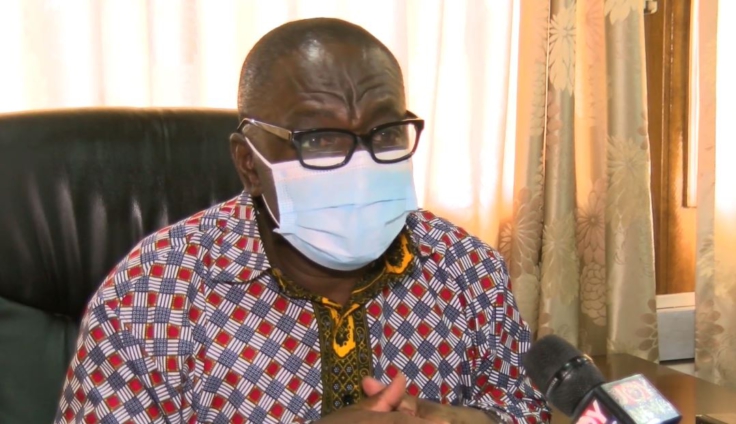The Ashanti Regional Health Directorate has joined the Epilepsy Community in commemorating International Epilepsy Day, which is observed on the second Monday of February each year.
Dr Rita Larson-Reigndorf, the Deputy Health Director in Charge of Clinical, told the press in Kumasi that the day is marked to relieve public fear and ignorance, prejudice, and social stigma associated with epilepsy.
“International Epilepsy Day seeks to raise awareness and educate the general public on the true facts about epilepsy and the urgent need for improved treatment, better care, and greater investment in research,” she said.
Dr Larson-Reigndorf says many patients of epilepsy are living their lives in the shadows for the fear of being stigmatised, hence reluctant to speak out.
According to her, epilepsy is a chronic non-communicable disease of the brain that affects people of all ages and has no effect on anyone who comes in contact with the patient.
As the 2022 International Epilepsy Day coincides with Valentine’s Day, a season to show love, the epilepsy community is expecting the world to show love to epileptic patients, hence the theme: “Friendship with Inclusion”.
Sixty-five million people around the world live with epilepsy making it one of the most common neurological conditions.
In Ghana, an estimated one per cent (300,000 people) of the population live with epilepsy and only 15 per cent of those diagnosed are on treatment.
For six out of ten people with epilepsy, the cause is unknown.
Dr Larson-Reigndorf says it is possible to diagnose and treat most people with epilepsy at the primary healthcare level without the use of sophisticated equipment.
“A lot can be done to improve the quality of life of the people with epilepsy. It is possible to diagnose and treat most people with epilepsy at the primary healthcare level without the use of sophisticated equipment.
"For many people living with epilepsy, the misconception and discrimination can be more difficult to overcome than the seizure themselves,” she noted.
Ashanti Regional Health Director, Dr Emmanuel Tinkorang, wants the public to open their arms to people living with epilepsy to make them feel belonging.
Ghana is one of the countries that have achieved the WHO Programme on reducing the epilepsy treatment gap and the mental health Gap Action Programme (mhGAP).
These projects have focused on expanding the skills of primary care and non-specialist health providers at the community level to diagnose, treat and follow up people with epilepsy.
These pilot programmes have led to a considerable increase in access to treatment for epilepsy.
Latest Stories
-
Video: Hitz FM’s Rep Ur Jersey ends in style as fans jam to afterparty beats
3 hours -
Hitz FM’s Rep Ur Jersey turns electric as PSG thrashes Inter 5–0 in Champions League showdown
3 hours -
PSG thrash Inter Milan to win first-ever Champions League title
3 hours -
Aviation Social Centre packed as UCL Finale kicks off at Hitz FM’s Rep Ur Jersey
5 hours -
Photos: Fans win big at ‘Rep Ur Jersey’ as sponsors reward game participants with exciting prizes
5 hours -
Australia to increase contribution to UN Peacebuilding Fund to $15m annually – High Commissioner
5 hours -
Dr. Angela Dwamena-Aboagye named MTN Hero of Change for championing women and children’s rights
5 hours -
From Morocco to Botswana – Africans turn to trusted media and experts for climate change information
6 hours -
Mahama announces Labour Export Programme
6 hours -
Prof. Peter Atudiwe Atupare appointed Dean of University of Ghana School of Law
6 hours -
Goldbod is already doing wonders – Mahama praises CEO Sammy Gyamfi
7 hours -
Mahama promises attractive cocoa price in August, pledges 200,000 hectare boost to sector
7 hours -
UHAS Council Chairman Prof. Kodzo Gavua urges graduates to serve with passion, integrity, and innovation
8 hours -
Dr. Charisa Ogbogbo becomes first female professor in Mathematical Sciences at UG
8 hours -
Communication Ministry assures data price cuts as TELCOS prepare to reduce costs soon
9 hours

